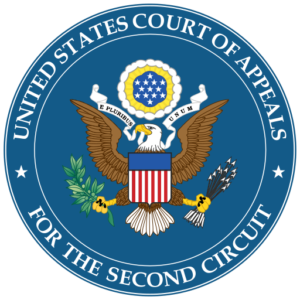Novelty, parody, and sketch songs have never been a major interest of mine. And most of my reviews would sound the same. So this week, instead of writing about the song, I’m going to pick one of its intriguing quirks or a related topic to spotlight.
Spotlight: Public domain, fair use, and parody
In 1955, Philco released an affordable turntable made of transistors, bringing home-listening of self-curated collections of music to the mainstream. This was a catalyst for the modern era of music to kick off: Within a decade, rock and roll became the signature American sound, pop music transformed to art music (courtesy John-Paul-George-Ringo), and many other genres and conventions took shape.
One interesting development was the emergence of parody music. Musicians — often stand-up comedians — wrote and recorded silly parodies of recognizable tunes.
Through the end of the ’50s, parody was a legally murky area. Is it a violation of copyright to record an identical tune with different lyrics? As a result, many parodies opted to use public domain compositions as their base. Songs in the public domain are unprotected from copyright, thus musicians would face no risk of legal retribution from the owners of the original.
“Hello Muddah, Hello Faddah,” for example, tells the story of a boy’s trip to Camp Grenada gone wrong in every. His letter homes details woes like bad weather, gators in the water, and a nasty coach who reads aloud from Joyce’s Ulysses. Allen Sherman, a comedy writer and performer, set the gag to “Dance of the Hours,” a ballet number that became a standard upon inclusion in Fantasia. Since “Dance of the Hours” was composed in the 1870s, it was in the “public domain” and could be used without cost or limitation, while still feeling “familiar.”
(*) Side note: If you find the idea of the public domain an intriguing one — or even if you don’t — you should check out the horror host TV show run by Earn This regular Brian Terrill. It’s called Count Gauntly’s Horrors from the Public Domain. Visit CountGauntly.com for more info and for viewing delight. While we’re talking about Brian… He wrote a tribute to another of Allan Sherman’s parodies, “The 12 Gifts of Christmas,” for his Christmas Classic Countdown, archived here. While we’re still talking about Brian… he’s a delightful dude!

You have this seal of approval to write the one millionth dumb parody of whatever song is #1 on the charts and post it on YouTube. But that doesn’t mean you should.
Over the past half century, the legality of parody has clarified, generally in favor of the parodist, not the original owner. The first milestone came in 1961. Mad Magazine published a song book with parody lyrics to pop and showtunes. They were sued by a team of record labels, and the Supreme Court dismissed the suit, marking Mad’s parody lyrics as legal. It was an important precedent, if not a comprehensive one.
In 1976, parody received perhaps its biggest boon: the passage of the Copyright Revision Act, which declared parody as an act protected by “fair use” of copyright material. In other words: anything copyrighted is open field for parodists. This effectively meant artists couldn’t be sued for creating parodies.
The next big win for our beloved spoofers came in 1994. The Supreme Court ruled in Campbell v. Acuff-Rose Music, Inc. that it’s not only legal to create parody, but to profit from it. Commercial works are covered by fair use as are non-commercial works.
And the last big win came in 2009. After Family Guy made an anti-semitic rip-off of “When You Wish Upon a Star” called “I Need a Jew” — without using the exact tune or directly referencing the original — the owners of the Disney classic sued FOX, claiming they commercialized the original without any intent of commentary. Federal court disagreed and noted its comedic juxtaposition was sufficient. Further, the song didn’t need to be a one-to-one melodic mimic to be a fair use-protected parody.
It’s also worth noting that the juggernaut of parody for the past 40 years, “Weird Al” Yankovic, has been careful to gain artist approval before commercially releasing parodies. This has probably mitigated some of the pushback from the record labels, as the artists have already given the OK. But even if they did, precedent has Yankovic and other parodists on the right side of the law.
(If your curious for more info, this page tackles some of the nuance of parody law in layman’s terms.)





